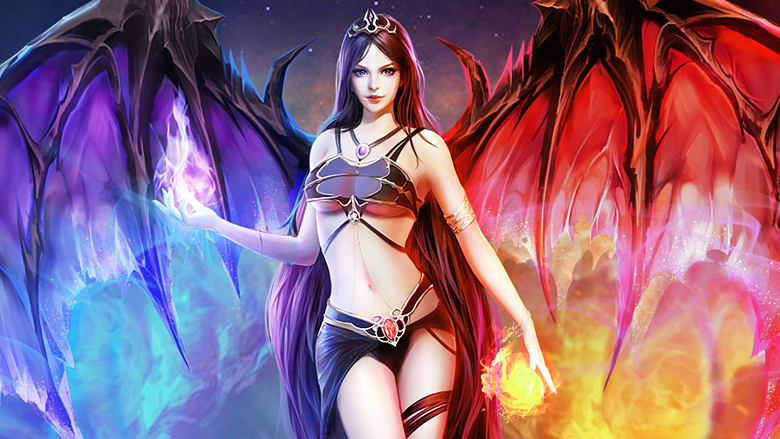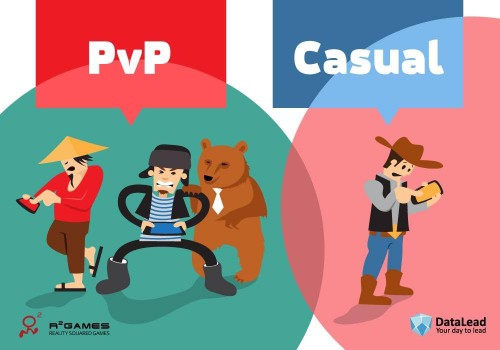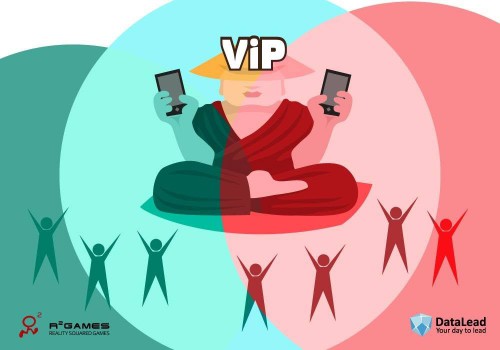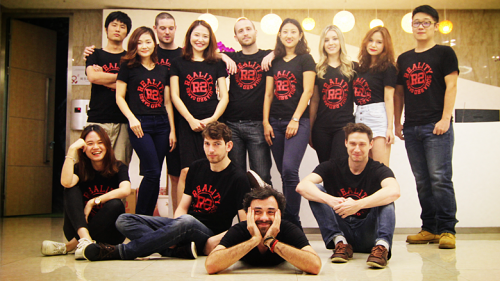The publisher of Clicker Heroes and Wartune answered the questions App2Top.ru and DataLead about the Russian market and the differences between our players and the Chinese.

Art: Winterfrost Legacy (R2Games)
To begin with, a little introduction: R2Games is a Chinese company that specializes in publishing projects of the Celestial Empire in Western markets.
The company is a little more than five years old. In the Russian market, she may be known as the mobile publisher of EZPZ and Clicker Heroes. In the USA, the company acts as a publisher of the browser Wartune. Our questions were answered by Katya Wu, Business Development Manager at R2Games.
You entered the Russian market at the end of 2014. How do you assess your position now?
We came to you quite late: only in December 2014 we launched the first game (“Loyalty of Dragons”), and in January – the second (Shadowbound). The ruble leveled off at that time, which had a positive effect on our income and costs. Considering that Russia is in the top 5 in terms of the number of [mobile] downloads [in the world], we will soon release several more games and plan to expand further.
Despite the economic crisis, the mobile games market in Russia continues to grow. What do you think is the reason for this?
The global growth of mobile traffic plays a major role here. The mobile market is growing all over the world, not only in Russia, and this is largely due to the availability of smartphones. There are a lot of inexpensive Android-based models coming out, mobile operators are offering increasingly economical tariffs, everyone can now own a smartphone.
What behavioral features have you noticed among Russian users? Are they different from gamers in other countries?
Russian users are the most hardcore. They love to win and pay special attention to the gameplay and game mechanics. The most useful tips on optimizing the balance of the game, introducing new chips come from the Russians.
The R2Games teamIn which countries do you still promote games?
Which ones are more successful for you and which countries are you focusing on now?
We release games in dozens of countries, and Russia, of course, occupies an important place. Russian-speaking countries, in principle, have great potential.
Will simple localization work today? For example, if we take a Chinese project focused on the Celestial market, is it possible to simply translate it into Russian/ English (and do this)?
From a technical point of view, one translation is not enough: the hieroglyphic language is compact and the translated phrases simply will not fit into the interface. We will have to adapt the interface, solve the problem of gaps inherent in Chinese culture, as well as modify the economy of the game, since the Asian financial system is not perceived by everyone.
Lacuna (in a broad sense) is a national—specific element of culture, which has found an appropriate reflection in the language and speech of the speakers of this culture, which is either not fully understood or misunderstood by the speakers of another linguistic culture in the process of communication.How exactly do the American, Russian and Chinese players differ from each other and how are they similar?
Everyone, of course, is united by a passion for games. However, Chinese and Russian players have a special love for complex structures and interfaces, they like to gather in teams and willingly fight in PvP, whereas the American gamer prefers casual games and does not really strive to get into the top of the arena.
 How big is the difference in the average check between representatives of these countries (ARPU, ARPPU, LTV)?
How big is the difference in the average check between representatives of these countries (ARPU, ARPPU, LTV)?
After the collapse of the ruble exchange rate at the end of 2014, the average check between Russian and American users, of course, sharply diverged. The Chinese market still remains one of the most paying in the world. I think it’s clear from here how profitability is distributed.
How does the project adapt to each market (what do you change in the balance sheet, which stocks do you refuse, which ones do you implement, what do you do with price tags)?
We cannot influence the price in mobile games in any way – the price tag remains the same for all markets. Often the balance is optimized in the process of receiving feedback from users: many players give good advice, and we always listen to them.
It is known that Chinese players often flaunt their VIP statuses. How does the share of income generated by such statuses change in other countries?
VIP status in our games is like a reward for loyalty, it is not bought separately from the game currency. Rather, it is assigned and improved as the gamer uses the in-game currency. Therefore, the more transactions a player makes, the higher his VIP status, so that all paying players have it without exception.
There  is an opinion that Japanese players do not like consumables. And what do the Chinese like / dislike, not counting VIP statuses?
is an opinion that Japanese players do not like consumables. And what do the Chinese like / dislike, not counting VIP statuses?
Most RPGs in the Chinese market are related to classic Chinese novels and culture in general.
It is curious, but the mythology of the ancient Slavs or other peoples of Russia does not particularly figure in the Russian-speaking market.
In China, preference is given to Asian-themed games, players love the social element of applications and are willing to chat.
In terms of graphic design, the anime style is popular, and realistic and minimalistic do not attract users much.
Thanks for the interview!

